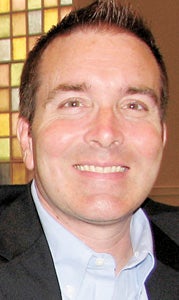Hope and healing at Christmas
Published 1:39 pm Monday, December 24, 2012
By Rev. Thurman Hayes
Charles Dickens’ classic, “A Christmas Carol,” ends on Christmas Day — the most joyous day of Ebenezer Scrooge’s life. Why is this formerly hardhearted, miserly individual — who had routinely said, “bah humbug” to the whole Christmas idea — suddenly so joyous on this Christmas Day?
It’s because Scrooge, thanks to a dream in the night, has seen what life is all about for the first time. And, despite his past, he realizes that he has been given a new start in life. He has come to terms with the depths of his heart, and has been given a new heart.
The dream causes Ebenezer Scrooge to “get it.” He wakes up on Christmas morning with the realization that he has been given a fresh start, another chance at life…but now with new priorities. He can’t wait to begin using the rest of his life to bless people, to be a giver rather than a taker.
That’s one of the great things about Christmas — it takes us outside of ourselves as we focus on buying gifts for others. Of course, people originally did this in recognition of the fact that God has given the greatest of all gifts for us, and that gift is his Son. “For God so loved the world that he gave his only Son, that whoever believes in him should not perish but have eternal life” (John 3:16).
At Christmas we remember that God became a man. He left the glory of heaven, and was born in the most humble circumstances imaginable, so those who trust him might one day share in his glory. “For you know the grace of our Lord Jesus Christ, that though he was rich, yet for your sake he became poor, so that you by his poverty might become rich” (2 Corinthians 8:9).
The riches of knowing God are available to anyone who will receive the free gift of salvation made possible by Christ. But this new beginning, this forgiveness of sins, is available to us, not simply because Jesus was born for us, but because he died for us and was raised from the dead. The manger of Bethlehem led to murder in Jerusalem, as Jesus was nailed to a cross, taking all our sins upon himself so that those who humbly acknowledge their sins and receive him as Savior can be forgiven.
This Christmas we remember those families in Connecticut whose hearts are broken. We can scarcely imagine their pain. But part of the message of Christmas is that God does understand their pain, and ours. Christianity is about a God who understands human suffering, because he became a human being … a human being who suffered. In fact, God understands exactly what it is like to lose an innocent child to an evil act of violence, because his Son was nailed to a cross. And his Son was raised from the dead as a sign that evil will not have the last word in our world.
As we think about the tragic events of recent days, we should be reminded that part of the Christmas story is that King Herod tried to eliminate the baby Jesus by ordering a massacre of little children in the region of Bethlehem. The gospel of Matthew speaks of the “weeping” that parents did in those sad days.
Evil Herod was not able to kill the baby Jesus. However, Jesus would one day willingly be killed for us. He loved us and gave himself for us, and was raised from the dead so that we might have life. He has prepared a place in heaven for anyone who trusts in him, and he will one day return to create an earth without evil, without murder, without death, and without tears. “He will wipe every tear from their eyes” (Revelation 21:4).
In the meantime, he calls his followers to be agents of his love and grace and hope in a world that is broken and marred by sin. This Christmas Day, the risen Christ invites you to know him. And he invites you to join him in his mission — a mission that will one day certainly be fulfilled.
Dr. Thurman Hayes is pastor at First Baptist Church on North Main Street in Suffolk.







